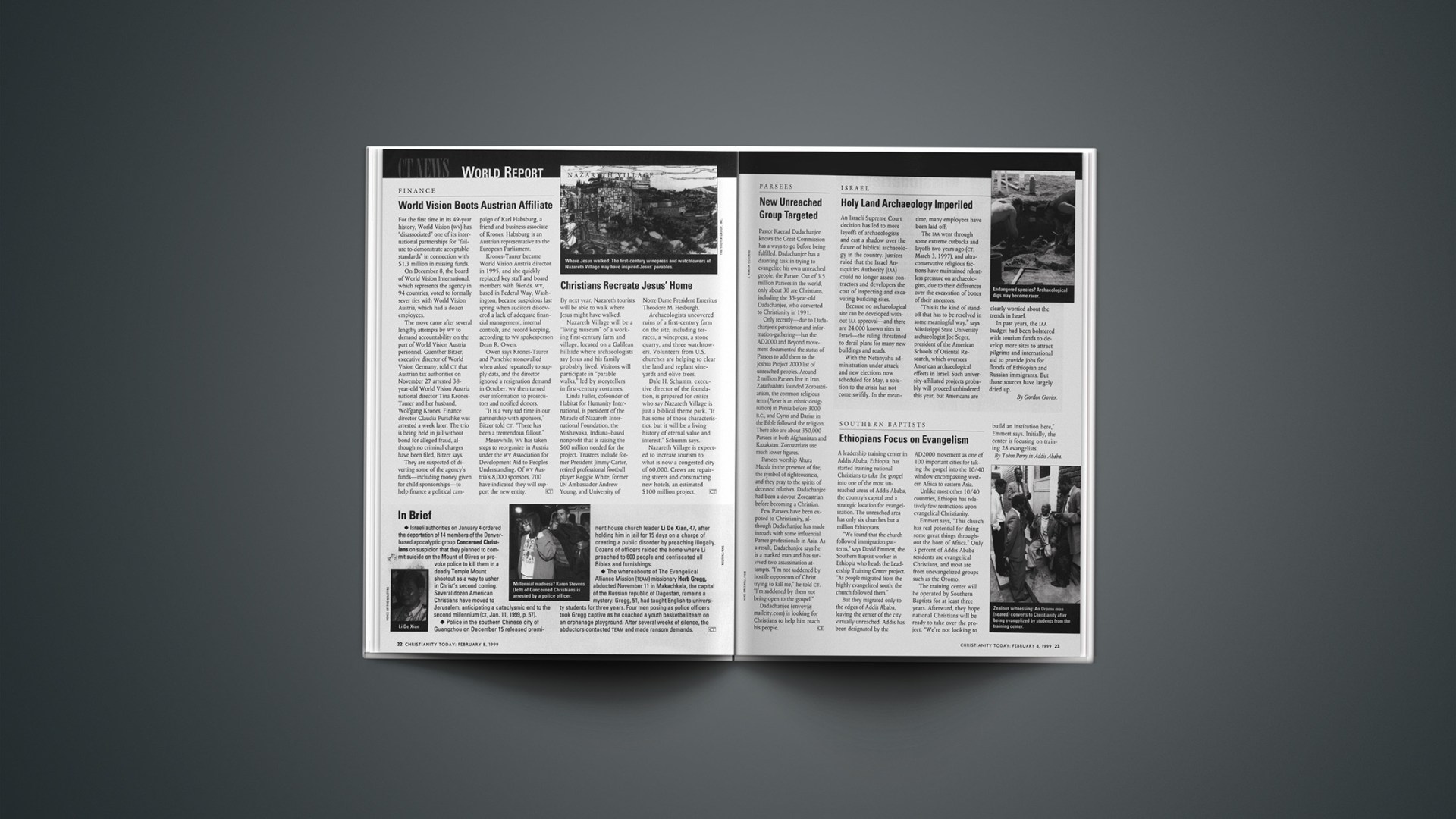An Israeli Supreme Court decision has led to more layoffs of archaeologists and cast a shadow over the future of biblical archaeology in the country. Justices ruled that the Israel Antiquities Authority (IAA) could no longer assess contractors and developers the cost of inspecting and excavating building sites.
Because no archaeological site can be developed without IAA approval—and there are 24,000 known sites in Israel—the ruling threatened to derail plans for many new buildings and roads.
With the Netanyahu administration under attack and new elections now scheduled for May, a solution to the crisis has not come swiftly. In the meantime, many employees have been laid off.
The IAA went through some extreme cutbacks and layoffs two years ago (CT, March 3, 1997), and ultraconservative religious factions have maintained relentless pressure on archaeologists, due to their differences over the excavation of bones of their ancestors.
“This is the kind of stand-off that has to be resolved in some meaningful way,” says Mississippi State University archaeologist Joe Seger, president of the American Schools of Oriental Research, which oversees American archaeological efforts in Israel. Such university-affiliated projects probably will proceed unhindered this year, but Americans are clearly worried about the trends in Israel.
In past years, the IAA budget had been bolstered with tourism funds to develop more sites to attract pilgrims and international aid to provide jobs for floods of Ethiopian and Russian immigrants. But those sources have largely dried up.
Copyright © 1999 Christianity Today. Click for reprint information.










